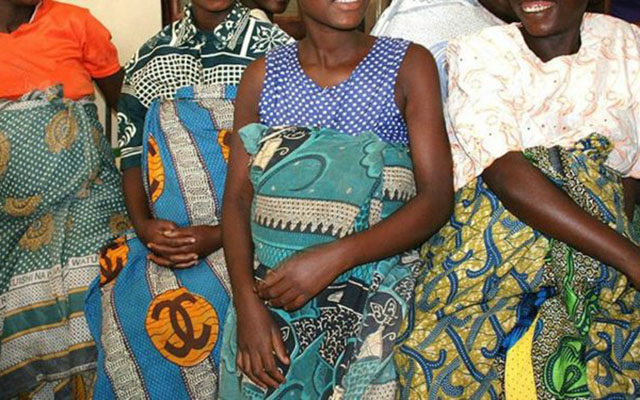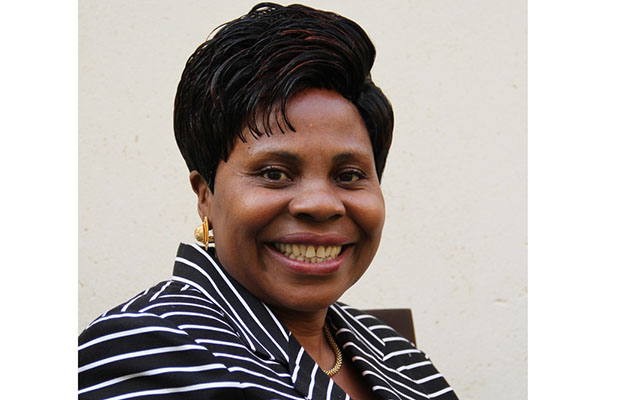Illegal abortion: A major public health concern
Ruth Butaumocho Gender Editor
When Ms Mildred Mapingure of Chegutu was raped by Courage Chamboko during an armed robbery in 2006, she never imagined that events of that fateful night would haunt her for the rest of her life.
Soon after the traumatising incident Ms Mapingure immediately reported the matter to Chegutu Police so that she could be assisted to get medical assistance and stop her from conceiving.
Chegutu Police referred her to Chegutu Hospital where the nightmare unfolded. Instead of getting the immediate attention, the medical personnel on duty that fateful night refused to “drain the sperms from her body”.
A few weeks after the mishap, Ms Mapingure discovered that she was pregnant. Several visits to the Chinhoyi Magistrate’s court to seek legal recourse and have the pregnancy terminated were futile.
Her hopes were hinged on the provisions of the Termination of the Pregnancy Act (1977) Section 4 which allowed rape victims to abort on the grounds that intercourse was unlawful. Sadly for her when the certificate was issued, six months later, it was too late to terminate the pregnancy. Ms Mapingure eventually gave birth to a child against her will.
Ms Mapingure is among hundreds of women in Zimbabwe who are giving birth against their will because it is illegal to abort. While Ms Mapingure’s situation qualified her for an immediate abortion because of the circumstances in which she got pregnant, she still could not access the services.
The situation is even more complicated for the majority of women in Zimbabwe who often resort to backstreet and illegal abortions when they find themselves pregnant and are not prepared to give birth.
The majority of women who opt for illegal abortions, which sometimes turn fatal know that their fate, demise and future is yoked on a piece of legislation promulgated in 1977 and is yet to be aligned with existing laws in the Constitution that now have provisions to ensure women have rights to safe reproductive health.
According to the Termination of Pregnancy Act of 1977, it is illegal to terminate a pregnancy unless it has been sanctioned by Government authorities among them, the court, which has to confirm that the intercourse was unlawful.
This might be in the case of sexual violence, incest or other circumstances which makes it impossible for one to give birth. Religious beliefs such as Christianity widely practiced in Zimbabwe has not made it easier for women who want to abort, where the preservation of the sanctity of life is considered to be important. These restrictive provisions of the Act coupled by morality issues is forcing many women to opt for unsafe backyard abortions.
Backstreet or illegal abortions have become a major public health concern in Zimbabwe, with reports pointing to an increase in unsafe abortions, straining the ailing health sector.
According to the Demographic Health Survey, 30 percent of maternal mortality are due to unsafe abortions. Health professionals say that the figures were just a tip of the iceberg of the number of women opting for unsafe abortions in a desperate move to manage unplanned pregnancies.
The director of family health in the Ministry of Health and Child Care, Dr Bernard Madzima said illegal abortions were a major public health concern for Zimbabwe.
“In fact the increase in maternal mortality ratio is as a result of unsafe and illegal abortions that are contributing 23 percent to the maternal morbidity, a figure which is a cause for concern,” he said.
Dr Madzima added that while illegal abortions were widespread in Zimbabwe, most cases were being reported in poor communities and in rural areas, with young girls and unmarried women constituting a high percentage of people engaged in illegal abortions.
He added that even those who were eligible for abortion as stipulated within the Termination of Pregnancy Act were still failing to access the services owing to long bureaucratic practices both within the judiciary and the health sector.
“The process is cumbersome within the same framework and a lot of people still fail to abort within a specified timeframe. They will eventually give birth against their will as both the legislative and the health systems will still be working on the modalities for abortion,” he said. Despite the complexities and challenges of illegal abortions, Dr Madzima said the health ministry offer post abortion care in all its health centres.
“Women who would have aborted illegally can access post abortion care and no questions are asked. We remain committed to strengthening family planning services,” he said, adding that the conversation around abortions was not a health ministry’s issue, but a societal one, which needed to be addressed as a matter of urgency.
Katswe Sistahood, director Ms Talent Jumo called on the Government to review Termination of Pregnancy of 1977 and discriminalise abortion to ensure that women and girls can choose what works best for them.
“There is an upsurge of backstreet and illegal abortions taking place in Zimbabwe, putting the lives of women, particularly young girls at risk. The existence of the law (Termination of Pregnancy Act) has not in anyway stopped abortions, but has seen an increase in backstreet termination of pregnancy.”
Ms Jumo noted with concern that illegal street abortions often caused health complications, which were further compromising health needs for the generality of the female populace.
“We are not talking about single, but multiple abortions, as women and girls find themselves in untenable situation, leaving them with no choice but to abort on several occasions.
“Some of the illegal abortions are often as result of date rape, or sexual violence perpetrated to the victim by relatives or close associate. The victim is often threatened with unspecified action, leaving them with no choice, but to abort.” Ms Jumo said it was sad that instead of being a legal matter, termination of pregnancy in Zimbabwe had become a class issue.
“Back street abortions often occur in impoverished communities, by girls and women with limited resources, whilst parents who live the other side of Samora Machel actually fly their pregnant children to neighbouring countries for safe termination of pregnancy,” she said.
Whilst the preservation of the sanctity of life is one of the major reasons why abortion remains illegal in Zimbabwe, there are several problems associated with unsafe abortions, which poses serious health threats women while straining resources in the health sector.
Health experts say the risk of death following complications of unsafe abortion procedures is several times higher than that of an abortion performed under legal surgical and safe conditions.
Adverse effects are experienced by pregnant women in Zimbabwe because most abortion providers are not only non-physicians but backstreet abortionists. Prolonged bleeding, which sometimes results in death is also another effect of illegal abortion because more often than not, those who conduct illegal abortions lack the expertise and use unorthodox means.
Depletion of the uterus may occur causing profuse bleeding, which may lead to haemorrhage and genital sepsis. Women Action Group executive director Mrs Edna Masiyiwa said women should be pro choice on reproductive health issues.
“Women should be given a choice to decide on issues concerning their health. Through working with women from various communities, we discovered that some fail to access contraceptives when they need them,further limiting their choices on whether they should have children or not.
“When they fall pregnant, the majority opt for backstreet abortion. Because of stigma associated with illegal abortions and the criminal element to it, the very same women do not access post abortion care, resulting in further health complication.”
Ms Masiyiwa called on the public and stakeholders to start conversing on abortion in Zimbabwe and its implications on the country’s maternal mortality rate. There are already calls by the civic organisations and other stakeholders to look into the Termination of Pregnancy Act of 1977 and align it with existing laws in the Constitution that speaks to the advancement of women’s rights.
Speaking soon after the judgement of Ms Mapingure, Ms Abigail Matsvai from the Zimbabwe Women’s Lawyers Association brought to the fore the need to amend the Termination of Pregnancy Act to be clear on the needs of both survivors of sexual violence and that of ordinary women to ensure that their rights to sexual reproductive health issues were not violated, as enshrined in the Constitution.
Section 76 (1) of the Constitution confers upon every citizen and permanent resident of Zimbabwe the right to basic health care services including reproductive health care services.
Several countries in Africa among them, Cape Verde, South Africa and Tunisia have since legalised abortion, a development that has seen in a decline in mortality rates of the three countries.
According to the Guttmacher Institute, there are 14 countries in Africa where abortion is completely prohibited, 36 countries where it is allowed under specific circumstances and three where it is allowed without restrictions.
- ◆ For feedback:[email protected]










Comments